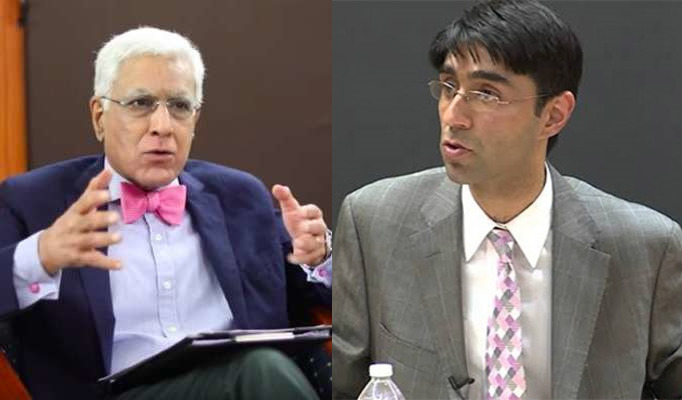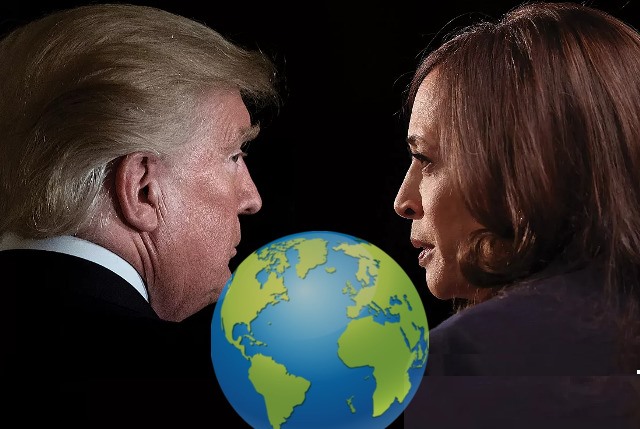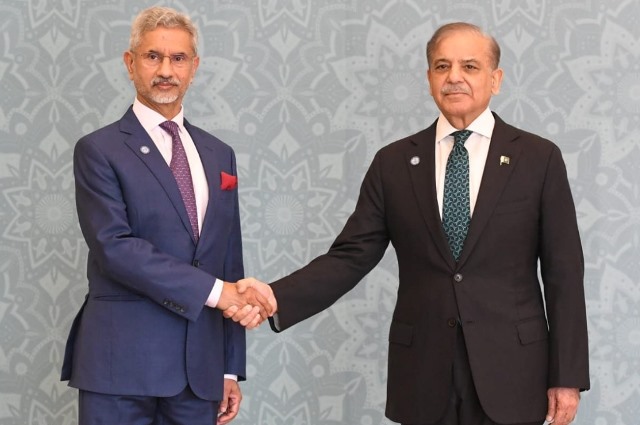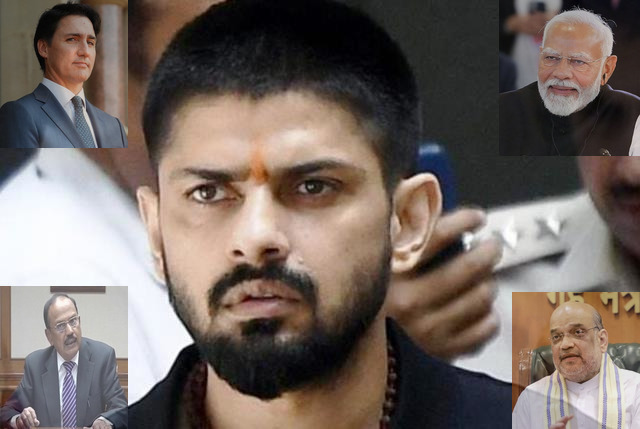
Dissecting False Claims Of Imran’s NSA Moeed Yusuf
The interview that Moeed Yusuf, the unelected advisor on national security of Pakistan Prime Minister Imran Khan, gave to an Indian media platform recently, made headlines in Pakistan. In some circles, it was even seen as a much-needed victory against the backdrop of the gathering storm of Opposition protests.
What exactly is Moeed Yusuf’s role? A judgement delivered by the Chief Justice of the Islamabad High Court in August 2020 held that unelected advisers and special assistants to the prime minister cannot exercise executive or administrative powers in the functioning of the government; any executive function so performed would deem to have been taken illegally, and hence void. Most crucially, as per the court’s decision, advisers and special assistants were not even authorised to speak on the government’s behalf.
According to the same judgement, the PM’s advisers have no role in policy matters of a ministry. Pakistan has a Foreign Minister and a Minister for Kashmir Affairs and Gilgit-Baltistan so how was an unelected adviser making policy statements?
For example, Yusuf asserted that no decision had been made on making Gilgit Baltistan (GB) a province and that GB will be included in the plebiscite the day the plebiscite happened. Such policy statements are not only illegal and void but they do raise the question whether the Foreign Minister and the Minister of Kashmir Affairs have been sacked or are they so incompetent that they have abdicated responsibility in foreign policy and Kashmir affairs to an unelected adviser?
Yusuf probably tried to get around this violation by projecting himself as the equivalent of India’s National Security Advisor (NSA). Unfortunately for him, he is not. The last NSA of Pakistan was Lt General Naseer Janjua (retd) who resigned in June 2018 after the Imran Khan government came into power.Thus Yusuf had no locus standi to make the kind of statements that he did purport to speak on behalf of the Pakistan government. On this ground alone, the entire interview can be junked and at best be seen as the views of an individual.
The article could well end here but it is necessary to expose the untruths and half-truths that Yusuf made with the full knowledge and backing of Imran Khan and through him of the army.
For starters, the interview, cleared at the highest levels in Pakistan, was pegged on the falsehood that it was India that had sent messages to Pakistan indicating a desire to engage in dialogue. Having painted India as the supplicant, the interview allowed Yusuf to enumerate the Kashmir-centric preconditions that Pakistan considered necessary to get the dialogue started.
This enabled cheap chest-thumping for its domestic audience that Pakistan was not desperate for dialogue but was laying down tough conditions before talks could take place. Yusuf would well have known the absurdity of the conditions and so the logical conclusion has to be that if the offer of talks was not essentially a bluff, then in a convoluted manner it was indicative of Pakistan wanting to have talks.
In a nutshell, while trying to convey the message that Pakistan was not really interested in a dialogue with India, he actually achieved the reverse. In any case, Yusuf’s efforts came to nought when the Indian MEA spokesman subsequently debunked the claim of India sending any message for a dialogue.
A more nefarious plank in the interview was trying to force equivalence between Pakistan and India on the issue of terrorism. He tried to do this by linking to India, individuals who carried out specific attacks in Pakistan like on the Army Public School in 2014. While Yusuf thought this would be sensational, it actually fell flat because it was not supported with any proof nor was he convincing why such information had not been revealed earlier.
On Kashmir, Yusuf said that India had scored a self-goal with the 05 August 2019 changes, was staring at an implosion, should save itself the embarrassment and reverse course. This actually begs the question that if India was in a quagmire, Pakistan should actually be rejoicing so why was Yusuf concerned?
Clearly, it was because India had handled the situation with maturity, belying Pakistan’s expectation and Yusuf was articulating Pakistan’s frustration that the situation had not exploded. Yusuf’s underlying argument was that India had become a ‘rogue state’ because it never obeyed the UN Charter and the UN resolutions and now India had formally violated them. Yusuf clearly had not read the UN resolutions and the step-by-step approach they prescribed for holding a plebiscite. Perhaps it would do him good to re-read the resolutions carefully and realize that it was Pakistan that had not followed the resolutions and was in violation of the UN resolutions and not India.
An incredible assertion Yusuf made was that Pakistan did not recognize the instrument of accession because it was signed under duress. He, like other before him have totally blanked out the Pak-sponsored invasion of the so-called raiders on 22 October 1947 that created the Kashmir issue in the first place.
Pakistan had directly planned and operationalized the invasion despite having a Standstill Agreement with the Maharaja. There is documentary evidence to show that both Jinnah and Liaquat Ali were on board.
The choices before the Maharaja were stark- either accept the looting and devastation of his kingdom or call for help. He chose the latter option but that according to Yusuf made the instrument of accession suspect!!! What Yusuf implied was that faced with the invasion, the Maharaja should have acceded to Pakistan and then the instrument would have been legitimate.
On Kulbhushan Yadav, too, Yusuf was very weak. He claimed that the two consular accesses given had been unimpeded whereas they were anything but that. He insisted that India should choose a Pakistan lawyer even after it was pointed out to him that as far back as April 2017, the Lahore High Court Bar Association had said that action would be taken against any Pakistani lawyer who defended Kulbhushan Jadhav. Against such a back-drop how could India expect any Pakistani lawyer to defend Jadhav? Yusuf was unable to answer this adequately.
On the Mumbai terror attacks, aware that Pakistan had been dragging its feet, Yusuf accused India of deliberately delaying sending witnesses and sharing evidence.
This, according to him was being done to continue to accuse Pakistan of terrorism. This was indeed an incredulous argument The escape hatch Yusuf used was to claim the moral high ground, that on the instructions of his prime minister, he wanted to talk about the future – ‘to talk to you how we can move forward, how we can get over our problems, not to litigate the past.’
In other words, India should sweep Pakistan terrorist activities under the carpet and forget about them. Yusuf must realize that this is not going to happen. Precious Indian lives have been lost that the country is not willing to forget. Pakistan will have to accept that without accounting for its terrorist activities in India, there can be no forward movement and India will litigate the past to its full satisfaction.
Where Yusuf possibly damaged himself the most was his denial of the genocide of the Uyghurs. He claimed that Uyghurs was a non-issue, ‘… I am telling you as a responsible official, we know everything we need to know about the Uighurs and everything else in China as they do about us. We have zero concerns, absolutely zero concerns.’ Not only was this a blatant lie given the mounting credible evidence but it would haunt Yusuf for a long time to come.
Defending one’s boss is admirable but for Yusuf to claim that Imran Khan is a strategic thinker is being ridiculous and facetious. Imran Khan’s track record is anything but of being a strategic thinker while such an assertion did Yusuf’s credibility no good either.
Overall, the most striking thing about the interview was the series of untruths and half-truths hawked by Yusuf. In the process, however, he revealed Pakistan’s strategy of trying to dent Brand India prior to India taking its place in the UN Security Council.
(The author is a Member of the National Security Advisory Board – ANI)



